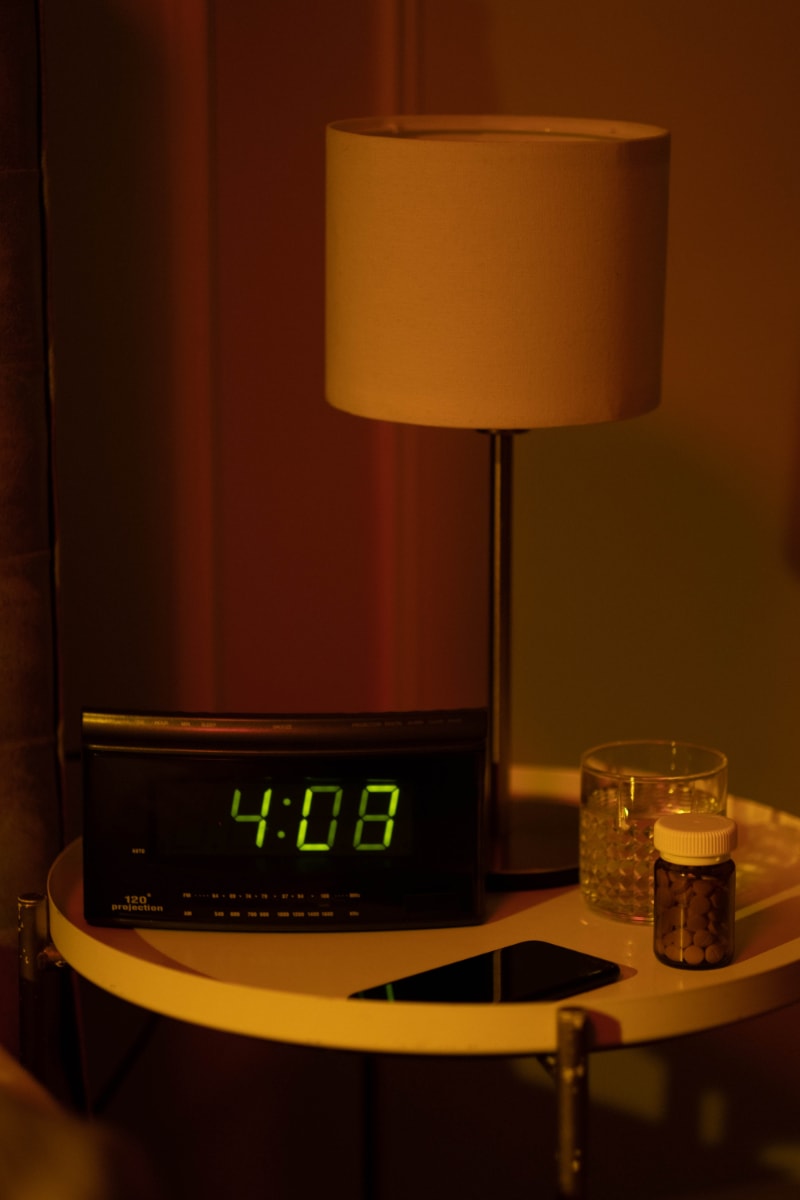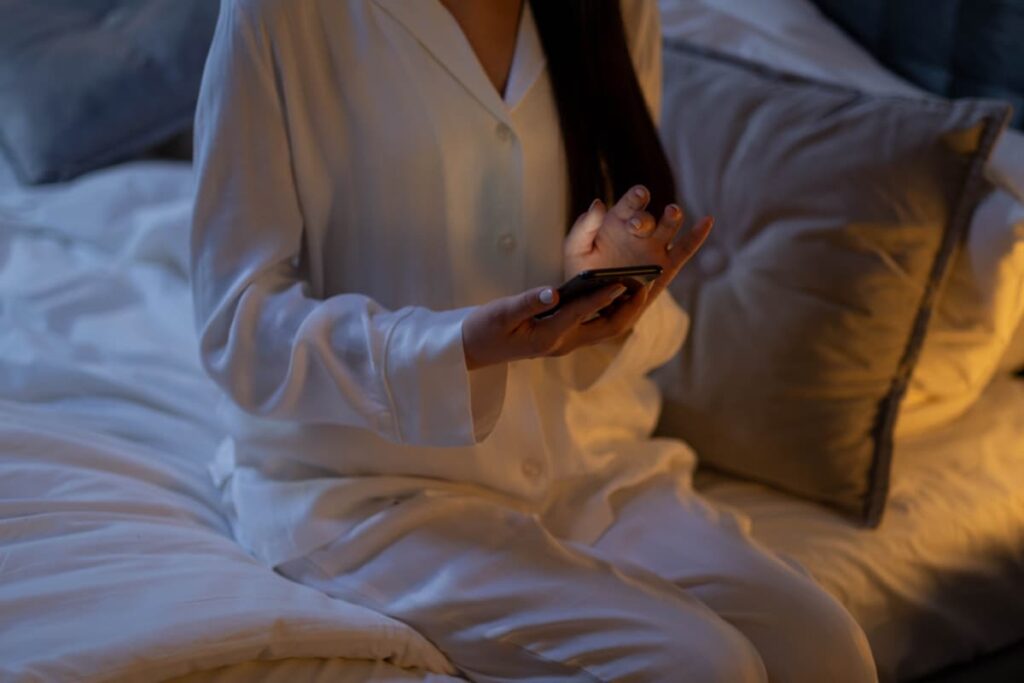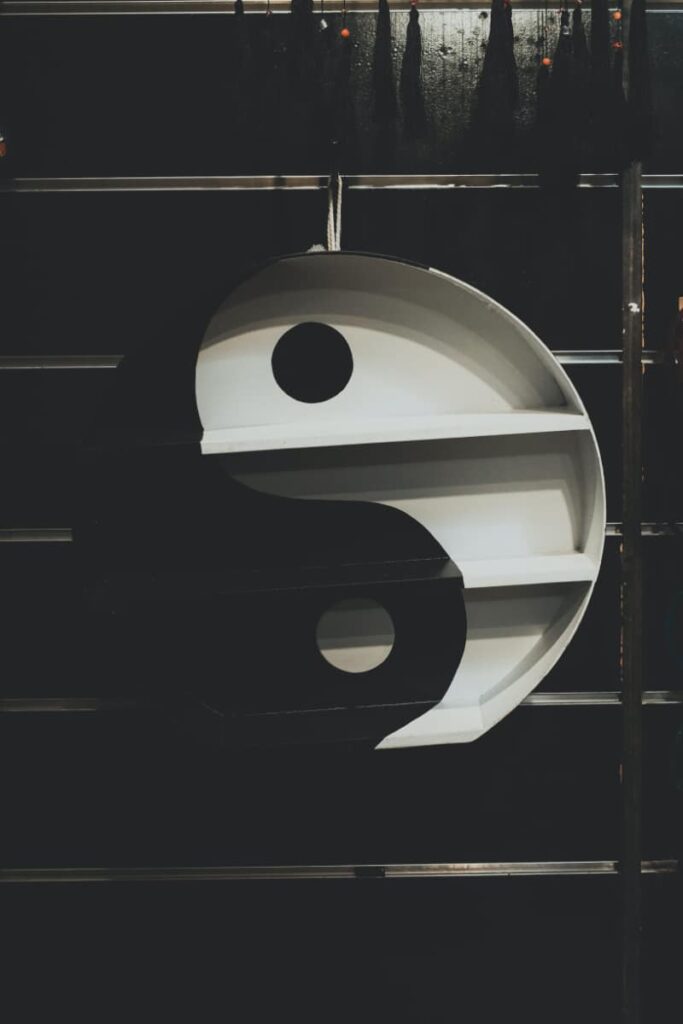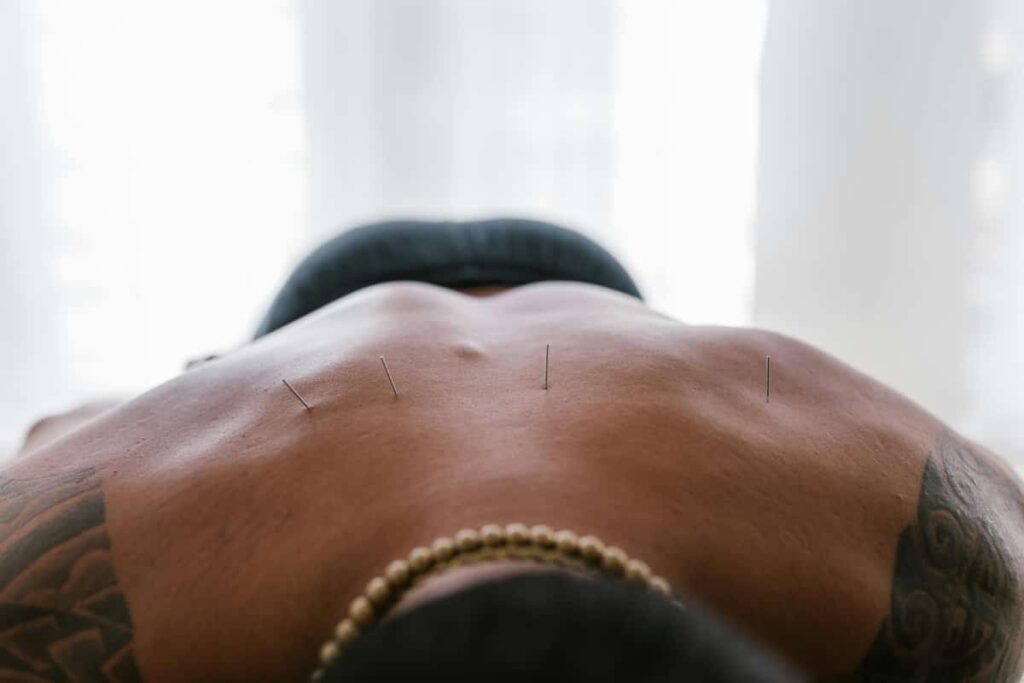Imagine this: It’s 3 a.m., way past sleep time, and you’re staring at the ceiling, your mind racing with thoughts, worries, and to-do lists. The rest of the world is peacefully asleep, but you’re wide awake, trapped in a cycle of sleeplessness. Hypnotic sedatives and cognitive behavioural therapy for insomnia don’t hit the spot. You’ve tried all kinds of alternative therapies for insomnia – counting sheep, essential oils, warm milk, even those over-the-counter sleep aids. But nothing works.
Then, in your search for relief, you stumble upon an ancient practice that promises to help: acupuncture treatment. You’re skeptical at first. After all, how can tiny needles help you sleep? But then you remember the countless nights of sleep disturbance, the daytime fatigue, the frustration. You’re willing to try anything if it means a chance at a good night’s sleep.
This is not just a story. It’s a reality for millions of people with insomnia around the world. But it doesn’t have to be your reality. Acupuncture, a practice rooted in thousands of years of history and backed by modern science, could be the key to unlocking restful, rejuvenating sleep.
Understanding Insomnia
Insomnia. It’s a word that sends a shiver down the spine of anyone who’s experienced it. Those sleepless nights, the constant restless sleep, the frustration of watching the clock tick away the hours. It’s a silent tormentor, stealing away your peace of mind and leaving you exhausted and drained.
Primary insomnia isn’t just about having a bad night’s sleep. It’s a persistent, relentless sleep disorder that can take many forms. There’s short-term, acute insomnia, a brief episode of sleeplessness usually triggered by stress. Then there’s chronic insomnia, a long-term pattern of inadequate sleep that lasts for months, sometimes years.

But what causes this sleep-stealing monster? The culprits are many. Stress, anxiety, depression, medical conditions, certain medications, poor sleep habits, and even your diet can all contribute to sleep issues. It’s a complex issue with no one-size-fits-all solution.
The symptoms of sleep deprivation are far-reaching. It’s not just about feeling tired. Insomnia can affect your mood, your memory, your concentration. It can impact your relationships, your work, your overall quality of life. It’s a ripple effect, with each wave of sleeplessness leading to more problems, more challenges.
But here’s the good news: You’re not alone in this fight. Millions of people around the world are battling insomnia, and many have found relief in an unexpected place: acupuncture. This ancient practice, steeped in thousands of years of history, could be the key to unlocking the restful sleep you’ve been longing for.
Western Countries’ Influence on Sleep Patterns
So, you’re grappling with sleeplessness. But have you ever wondered why this sleep disorder is so prevalent, especially in Western countries? Let’s explore the factors at play.
The fast-paced lifestyle that’s characteristic of Western societies has had a profound impact on our sleep patterns. Work schedules, electronic device usage, and the widespread consumption of caffeine and alcohol are just a few elements that have contributed to this shift. Modern life a risk factor for insomnia in and of itself!
Consider modern work schedules. They demand long hours and often require individuals to burn the midnight oil. Add to this the prevalence of shift work, which leads to a complete loss of alignment with the natural rhythms of the day. These demands are simply inviting disrupted sleep-wake cycles.
Then there’s the issue of electronic devices. The use of smartphones, tablets, and laptops before bedtime has been shown to suppress the production of melatonin, the hormone that regulates sleep. This can disturb our body’s natural circadian rhythms, making it harder to fall asleep and stay asleep.

And let’s not forget about caffeine and alcohol. These substances, which are widely consumed in Western societies, are known to interfere with sleep quality.
The impact of these factors is evident in the rising rates of persistent insomnia in Western countries. Chronic insomnia, defined as difficulty falling or staying asleep at least three nights a week for three months or longer, is a growing issue. According to a study published in the Journal of Clinical Sleep Medicine, insomnia in adults occurs in about 30% population in Western countries.
Acupuncture Treatment for Sleeping: An Ancient Solution to Sleep Better
Picture this: a practice so ancient, it predates recorded history. A technique so refined, it has stood the test of time for thousands of years. This is acupuncture, a cornerstone of traditional Chinese medicine and a potential lifeline for those with an inability to sleep.
Acupuncture is more than just needles. At its core, acupuncture is about balance. It’s about restoring harmony to the body, allowing it to heal and function at its best. It’s focus is on treating the underlying cause of insomnia rather than merely addressing its symptoms.
But how does it work? The theory behind using acupuncture for sleep is fascinating. The practice is based on the concept of Qi (pronounced “chee”), a vital energy that flows through the body along specific pathways known as meridians. When this flow of Qi is disrupted, it can lead to health issues, including insomnia.
Acupuncturists use needles to stimulate points along the body’s meridians, restoring the flow of Qi. It’s a gentle, non-invasive process, and many people find it relaxing, even therapeutic. Chinese medicine could be a solution for individuals who prefer a natural approach to addressing insomnia and related sleep disorders.

In the human body, Yin and Yang are present in all organs. The Yang Heart has a Yin role in it’s responsibility for circulation and calmness. Likewise the more Yin Kidneys have a Yang function, responsible for regulating energy and promoting activity. Insomnia is considered a result of an imbalance between Yin and Yang energies in the body, in particular when the Shen (consciousness/mind which is Yang in nature) is unable to rest properly at night (sleep). An unsettled Shen can then cause disruption to sleep and other physical symptoms like restless legs syndrome.
Five Element Theory is a fundamental concept in Traditional Chinese Medicine (TCM). It is used to understand the internal workings of the body and diagnose health conditions such as insomnia. An imbalance in any of the elements can cause insomnia and disrupt the body’s natural sleep patterns. For example, insomnia caused by an imbalance in the Heart element can cause restless sleep and excessive dreaming, while an imbalance in the Kidneys can cause difficulty falling asleep and frequent waking.
But don’t just take our word for it. Modern science is catching up with this ancient practice, with many studies supporting the effectiveness of acupuncture for a range of health issues, including insomnia.
Acupuncture for Insomnia and Sleep Disorders: The Connection
You’ve heard the claims, you’ve learned the theory, but now it’s time for the real question: Does acupuncture for insomnia really work? The answer, backed by both ancient wisdom and modern science, is a resounding yes.
So, you’re considering Chinese Medicine for insomnia. But what does the science say? Let’s delve into the research from clinical studies.
- According to a systematic review and meta-analysis[1], acupuncture has shown promise in managing a specific type of insomnia: cancer-related insomnia (CRI). Acupuncture and/or moxibustion had a positive effect on the PSQI score, a measure of sleep quality..
- CRI is not the only condition that acupuncture can benefit.. Another systematic review and meta-analysis[2] found that acupuncture can be a safe and effective alternative or supplement to conventional pharmacotherapy for the symptoms of insomnia in patients with depression.
- The power of acupuncture doesn’t stop there. A systematic review and meta-analysis[3] discovered that combining acupuncture with Chinese herbal medicine (CHM) resulted in a higher success rate in treating insomnia compared to Western medicine alone.
- And let’s not forget about auriculotherapy, a form of acupuncture that focuses on the ear. A systematic review and meta-analysis[4] found that auriculotherapy was more effective than sleeping pills, conventional acupuncture, and Chinese Herbs alone in the treatment of insomnia.
- Speaking of herbs, a randomized, double-blind, placebo-controlled trial investigated the efficacy of Shumian capsule (SMC), a patented herbal formula, for treating chronic insomnia. The study found that SMC could safely improve sleep quality and ease depression and anxiety in insomnia patients[5]. Further studies are needed to identify the best dosage and duration of herbal medicine..
Acupuncture may be a good option for managing sleep disorders, such as cancer-related insomnia and depression-related insomnia. We need further research to determine the best way to use acupuncture for insomnia.
Unlock the Secrets of an Acupuncture Session: Here’s What You Can Expect!
So, you’re ready to take the leap and try acupuncture therapy for insomnia. But what exactly can you expect from an acupuncture session? Let’s demystify the process.
Your journey begins with a consultation. Your acupuncturist will ask about your health history, your sleep patterns, and your lifestyle. This isn’t just small talk. It’s a crucial step that helps your acupuncturist understand your unique needs and tailor the treatment to you.
Next comes the treatment for insomnia. You’ll lie down on a comfortable table, and your acupuncturist will gently insert thin, sterile needles into specific acupoints on your body. You might feel a slight pinch as the needle goes in, but any discomfort should quickly fade. They may even use a little warming moxibustion. Many people find the experience deeply relaxing, and some even fall asleep during the session.
The needles will stay in place for about 20 to 30 minutes. During this time, you can relax, unwind, meditate, or simply enjoy the quiet. During this time whilst you may even have a little sleep acupuncture will do work its magic (known as an acu-nap).

After the session, you might feel a sense of relaxation and well-being. Some people report improved sleep after just one session, while others may need several sessions to see significant changes.
Acupuncture is generally considered safe, provided it is performed by a trained practitioner with proper safety protocols in place. Side effects are rare and usually mild, including temporary soreness or bruising at the needle sites.
Not only will your acupuncturist stick needles in all the right places, but they may also whip up a magical herbal potion to address your sleepless nights! Chinese herbal medicine is a treasure trove of formulas that tackle insomnia from all angles. Check out some of the go-to formulas for patients with insomnia:
- Suan Zao Ren Tang is a formula designed to help with insomnia caused by a Shen/Yang that is not able to be contained and rested, specifically if you’re experiencing restlessness, palpitations, and night sweats.
- Gui Pi Tang is a formula designed to alleviate insomnia by addressing the symptoms of heart and spleen deficiency, including fatigue, poor memory, and depression.
- The Tian Wang Bu Xin Dan formula is a remedy for insomnia caused by heat upward floating Yang, which can present with symptoms such as a rapid pulse, dry mouth, excessive dreaming, and hot flashes.
Don’t go just grabbing them off the shelves and chowing down however, they are medicine. These formulas should only be taken as prescribed by a trained Chinese Herbalist to ensure that they are matched to your individual presentation.
Other Beneficial Lifestyle Changes Alongside Acupuncture Help with Sleep Problems Too!
Acupuncture is a powerful tool in your battle to improve your sleep efficiency, but it’s not the only weapon in the management of insomnia. Combining acupuncture with healthy lifestyle changes can enhance the therapeutic effects of the treatment and help you achieve better sleep.
First, let’s talk about diet. Certain foods can promote sleep by increasing the production of sleep-inducing hormones. Consider incorporating foods rich in tryptophan, magnesium, and melatonin into your diet, such as turkey, almonds, and cherries.
Transform your bedroom into a sleep sanctuary! With a tranquil, dimly lit, and chilly space, you’ll snooze like a baby. Don’t forget to pack earplugs or a white noise machine to counteract any disruptive sounds. Plus, splurge on some blackout curtains or a cozy eye mask to keep the light at bay. Sweet dreams are just a step away!
Exercise is another crucial factor. Regular physical activity can help you fall asleep faster and enjoy deeper sleep. Just be sure to finish exercising at least a few hours before bed, as exercising too close to bedtime can actually make it harder to fall asleep.
Stress management is also key. High stress levels can interfere with your sleep, so it’s important to find healthy ways to manage stress. This could be anything from yoga and meditation to reading a book or taking a warm bath.
One of my favourites is to have a hot water foot soak with Magnesium (Epsom Salt) soaks for 20 minutes before bed. Magnesium is one of the most important minerals in our bodies, and it plays a key role in helping us to relax. When added to a hot water foot soak, magnesium helps to reduce stress and tension and improve overall relaxation before. Salt is also resonate with the Water Element and Yin energy ie sleep and rest! The warmth encourages your Shen (mind) to internalise and settle as you move towards a restful state, so take advantage of this time to meditate and be present with your body.

Finally, consider your sleep schedule. Going to bed and waking up at the same time every day can help regulate your body’s internal clock and improve your sleep quality. Try to stick to your sleep schedule as closely as possible, even on weekends.
Your sleep hygiene habits are not about showering before bed, but adopting a range of these basic lifestyle changes as well as avoiding electronic devices before bed. Practicing good sleep hygiene habits may help alleviate insomnia and improve the quality of sleep. And when you adopt these behavioural therapies into your routine, you become your own sleep specialist!
The 24-Hour Qi Clock: Understanding Yin and Yang Energies and Sleep Timing
So, you’re intrigued by the potential of Chinese Medicine treatment of insomnia. But there’s another layer to this ancient practice that’s worth exploring: the 24-hour Qi clock. Let’s unravel this concept.
Your journey into understanding the Qi clock begins with the realisation that our bodies are governed by a natural rhythm. This rhythm, divided into twelve two-hour segments, each linked to a specific organ system, dictates the flow of energy or “Qi” within us throughout the day.
This isn’t just an abstract concept. It’s a crucial framework that helps us understand the interplay of Yin and Yang energies, the two opposing yet complementary forces in Chinese philosophy, and how they impact our sleep patterns.
Yin, the calming and restorative energy, reigns supreme during the late evening and early morning hours. This is when our bodies are naturally inclined towards sleep. Yang, the activating and energizing energy, rules the daytime hours when we are most active.
Understanding this cycle can offer valuable insights into your sleep patterns. For instance, the period between 11 p.m. and 3 a.m., a peak time of Yin energy, is when our bodies are primed for deep, restorative sleep. If you find yourself frequently waking up during these hours, it could indicate an imbalance in Yin energy.
On the flip side, the hours between 7 a.m. and 11 a.m., a peak period of Yang energy, is when we naturally awaken and prepare for the day. If you struggle to wake up or feel sluggish during these hours, it could suggest an imbalance in Yang energy.
As Yang declines and we approach the bewitching hour of midnight, we have the time of utmost Yin. Once we journey forth from this point of the night, our Yang energy begins to increase and move outwards once more, finally regaining prominence with our waking at dawn (cos that’s when we all get up right?). To best align our sleep cycle with this natural rhythm we want to be surfing the wave of Yang declining and not trying paddle against it as it rises once more. This means we should aim to adjust our hours of sleep to ensure that we are asleep before midnight.
After this exploration of the internal biological clock, you might feel a sense of enlightenment and anticipation. Some people report improved sleep after understanding and aligning their routines with the Qi clock. Everyone’s experience is unique, so it’s important to be patient and give your body time to adjust to this new rhythm.
What to do when nothing works for insomnia?
We’ve journeyed together through the world of acupuncture for insomnia, exploring its history, its principles, and its potential to help you conquer sleepless nights. We’ve debunked myths, provided evidence, and given you a clear understanding of how this ancient practice can help you reclaim your nights.
So, why wait? Don’t let another sleepless night pass you by. Reach out to a licensed acupuncturist today and start your journey towards better sleep. It’s time to take control of your insomnia and reclaim your nights. It’s time to reconnect with restful, rejuvenating sleep .
Remember, a good night’s sleep isn’t just a dream. With acupuncture, it can be your reality. So, take the leap. Try acupuncture today and unlock the restful nights you’ve been longing for.
Dantian Health – Melbourne Acupuncture and Chinese Medicine Clinic
Reclaim your health and restore vitality with responsive, holistic healthcare
Citations:
- [1] https://www.ncbi.nlm.nih.gov/pmc/articles/PMC8755931/
- [2] https://www.ncbi.nlm.nih.gov/pmc/articles/PMC9051249/
- [3] https://www.semanticscholar.org/paper/195e2a983ed6558617fb72c0d24ec4eb4ba9255a
- [4] https://pubmed.ncbi.nlm.nih.gov/37199212/
- [5] https://www.ncbi.nlm.nih.gov/pmc/articles/PMC8976492/



